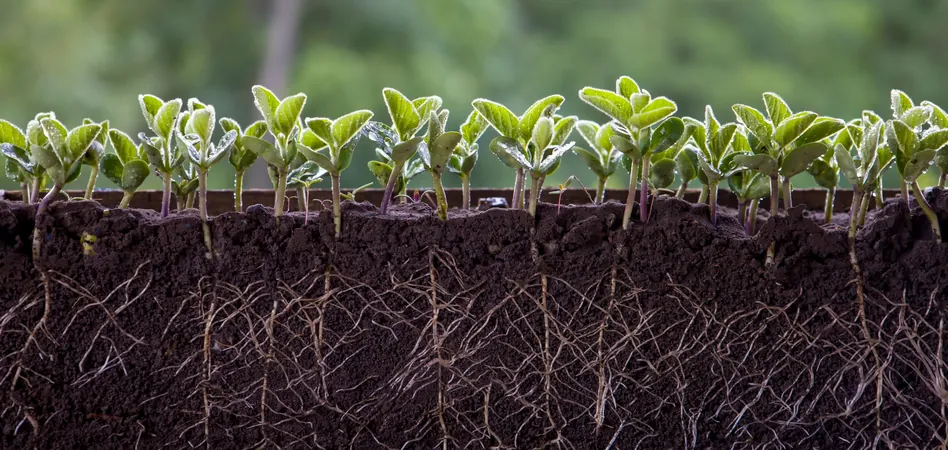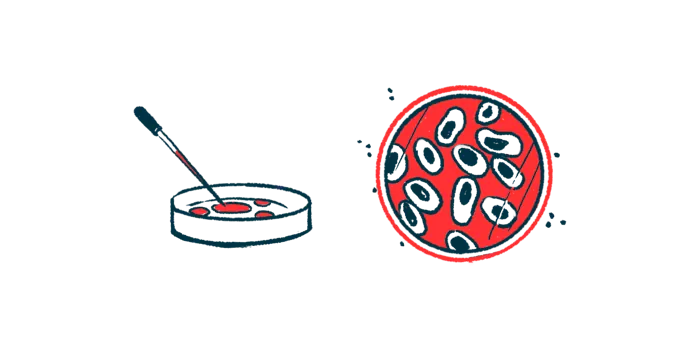
Revolutionizing Plant Science: Eco-Friendly Method Unveiled for Sampling Root Exudates
2025-04-17
Author: Arjun
Breakthrough Research from University of Rouen-Normandy
In an exciting new study, Valerie Peulon-Agasse, an associate professor at the University of Rouen-Normandy, has unveiled a groundbreaking eco-friendly method for sampling root exudates, utilizing gas chromatography coupled with high-resolution mass spectrometry (GC-HRMS). This innovative research promises to reshape our understanding of plant-soil interactions.
Understanding Root Exudates: Nature's Communication Tool
Root exudates are critical substances secreted by plant roots—these low-molecular-weight organic compounds include sugars, amino acids, and enzymes that facilitate communication between plants and the surrounding microbiome, which includes a myriad of soil organisms like fungi and bacteria. Grasping the dynamics of root exudation is vital for enhancing our understanding of the rhizosphere's complex ecosystem.
Challenges in Traditional Sampling Techniques
Sampling these elusive root exudates has proven challenging in agronomy. Most data have been derived from artificial systems like hydroponics, failing to replicate the natural soil environment accurately. Variability in exudate composition among different plant species, their developmental stages, and varying environmental conditions complicates the research further.
Introducing EcoRoot: A Novel Sampling Method
The research team explored a new sampling technique named EcoRoot—a combination of rhizoboxes and sorption traps designed for in-soil collection. The study primarily focused on the widely prevalent grass Poa annua L., utilizing various trap materials such as nitrocellulose membranes and glass microfiber to optimize the extraction of root exudates. Initial screenings revealed impressive adsorption qualities, particularly using CelN traps, which achieved over 91% efficiency for fumaric acid.
Unlocking a Metabolomic Fingerprint
Through the optimized EcoRoot method, the researchers successfully identified a metabolomic fingerprint of Poa annua, marking a significant advancement in untargeted analysis using GC-HRMS. This innovative approach not only highlighted soluble root exudate compounds but also distinguished them from soil contaminants, paving the way for future studies.
A Leap Towards Sustainable Plant Research
The EcoRoot methodology has been validated, showcasing a fresh perspective on eco-friendly sampling methods. This research opens doors for further studies focusing on refining sample preparation, possibly innovating trap sizes to closely match root dimensions, minimizing soil interference.
Exciting Future Prospects
With profound implications for sustainable agriculture and plant biology, this research by the University of Rouen-Normandy represents a monumental stride in environmental science. As scientists continue to develop these eco-conscious methodologies, the future of plant-soil interaction studies looks brighter than ever.




 Brasil (PT)
Brasil (PT)
 Canada (EN)
Canada (EN)
 Chile (ES)
Chile (ES)
 Česko (CS)
Česko (CS)
 대한민국 (KO)
대한민국 (KO)
 España (ES)
España (ES)
 France (FR)
France (FR)
 Hong Kong (EN)
Hong Kong (EN)
 Italia (IT)
Italia (IT)
 日本 (JA)
日本 (JA)
 Magyarország (HU)
Magyarország (HU)
 Norge (NO)
Norge (NO)
 Polska (PL)
Polska (PL)
 Schweiz (DE)
Schweiz (DE)
 Singapore (EN)
Singapore (EN)
 Sverige (SV)
Sverige (SV)
 Suomi (FI)
Suomi (FI)
 Türkiye (TR)
Türkiye (TR)
 الإمارات العربية المتحدة (AR)
الإمارات العربية المتحدة (AR)